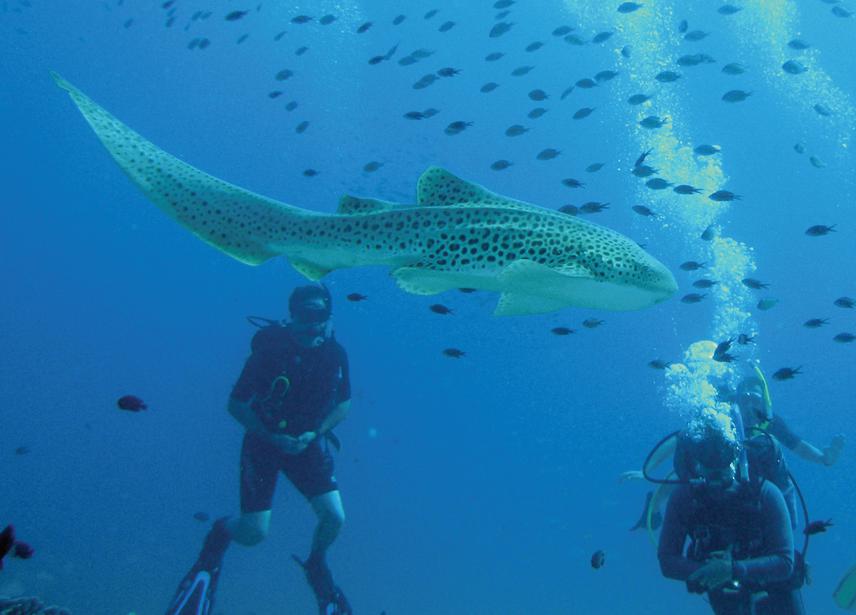Christine Dudgeon
This project aims to use photographs of leopard sharks taken by tourist and local divers in Thai waters to obtain baseline population data for this endangered species. Simultaneously, this ‘citizen science’ approach will promote conservation through education about this species as well as the importance of marine reserve habitats.

Leopard sharks (also known as zebra sharks: Stegostoma fasciatum) are an important species in the ecotourism diving industry of the Phi Phi Island group, Thailand. This species has a global conservation listing on the International Union of the Conservation of Nature (IUCN) of Vulnerable due to high fishing pressure and the marine reserves in the Phi Phi region appear to be important habitat for them. However, anecdotal reports suggest these populations are declining.
We will apply photo-identification methods developed for monitoring leopard sharks in Australian waters to establish a monitoring program through tourism and local dive communities in the Phi Phi Island marine reserves. During this first year of the project we will establish the project protocols for data collection and collation by training local operators and tourists in Thailand on how to take photographs for scientific purposes and upload them onto the web for collation. We will advertise the project through the local diving schools and PMBC to obtain more contributions of data and interest in the project while simultaneously educating the local community about leopard sharks and shark and ray conservation issues.
We will use the data from the first year to assess patterns of site-fidelity of leopard sharks to the Phi Phi Islands with respect to water temperature changes and other environmental conditions. This information will be integral to understanding the importance of the Phi Phi Island group and any protection conveyed to leopard sharks inhabiting this region to the conservation of this species. This data will also be statistically analysed to obtain baseline abundance estimates for the local leopard shark population.
The findings from the first year will be assessed and methods/protocols refined towards an ongoing long-term monitoring project at the Phi Phi Island group as well as expand to other important leopard shark habitat in Thailand.